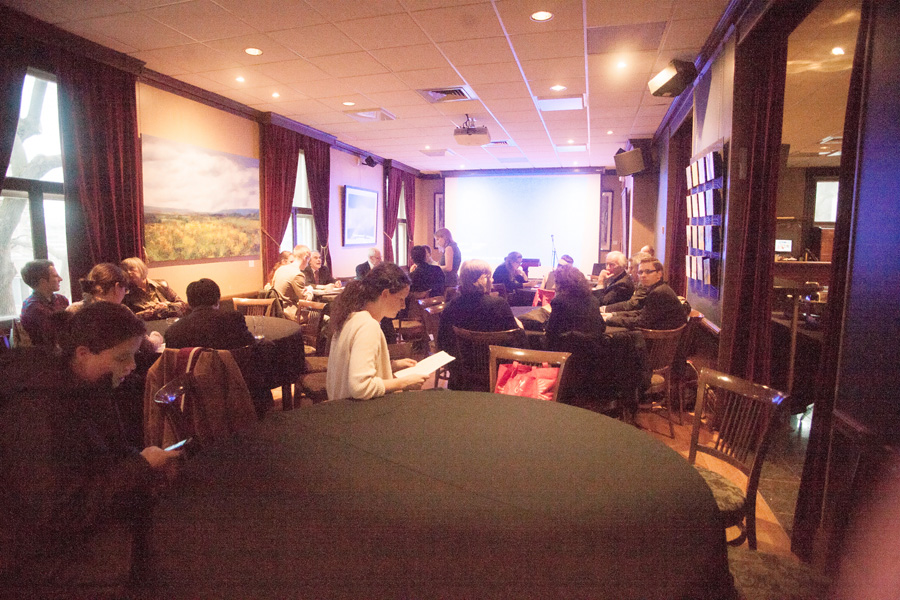On Nov. 18, McGill’s Board of Governors (BoG) met with students to address student concerns including budgetary issues, investment ethics, and transparency.
Co-hosted by Students’ Society of McGill University (SSMU) President Katie Larson, Post-Graduate Students’ Society of McGill University (PGSS) Secretary-General Jonathan Mooney, and BoG Chair Stuart Cobbett, the meeting was modeled after a similar event hosted last year.
“It went really well last year, and we [were] hoping for more dialogue this time to get a sense of the scope of the work the BoG does,” Larson said.
Comprised of 25 voting members, the BoG makes final decisions with respect to the maintenance and administration of the university. The BoG makes many of its decisions in confidential sessions, which has led some students to question the transparency and accountability of the body.
“How does the BoG consider the student experience in their decision making?” Mooney asked. “They’re this ‘otherworldly organization,’ and there’s no community interaction.”
Cobbett said the BoG is addressing transparency, but the issue is complex.
“In the past, there were fewer items in the open than perhaps could have been, so we are putting more and more in the open,” Cobbett said. “We are trying to be more transparent, but there are some things that by their very nature we cannot be transparent about. The university’s budget, for instance, we debate in closed session every year.”
Cobbett also said it is important to understand the difference between the BoG’s role and that of the administration.
“We are a governance body,” Cobbett said. “We give advice on strategic priorities, but it is very important to remember that the university is run by the principal and administration.”
Other questions focused on the BoG’s commitment to environmental concerns. Some students asked board members to explain their policies on sustainability issues ranging from efficient heating to ethical investments.
“McGill has a really strong reputation as an innovative leader,” said a student who could not be identified. “What kind of ways can we use that power we have now to address climate change, especially on this question of fossil fuel divestment?”
Cobbett responded that divestment was a complicated issue that has been addressed by the BoG before. Given the university’s current budgeting constraints, Cobbett stressed that it is important for the investment committee to remain concerned with generating revenue, as opposed to divesting from the fossil fuel industry.
“Ethical investments often […] underperform in the market as a whole,” Cobbett said. “It’s tough enough to make money, and for our investment managers to get a decent return on our endowment, without telling them what they can and can’t invest in. I’m not saying we haven’t done it, or that we won’t do it in the future, but it’s something that we have to consider very carefully.”
Other students questioned the effect of the university’s recent budget cuts on staff and professors, class sizes, and the availability of academic resources. Students voiced concerns about the feeling of anonymity at a large university like McGill.
“Is the number of undergraduate and graduate students going to continue increasing if we’re changing the ratio of students to teachers?” one graduate student asked.
“There is absolutely no intent to increase our revenues by dramatically increasing the size of our student body,” Cobbett responded.
Cobbett said he is optimistic about McGill’s financial situation and confident that the situation will improve within the next five years.
“It’s a tough time at McGill, but I don’t want anyone to think we’re teetering on the brink,” Cobbett said. “We have a fabulously strong institution with wonderful people.”
Organizers of the event said they were pleased with the participation of the McGill community.
“Very few universities do this sort of thing,” Mooney said. “It shows that the governors want to be engaged–it’s fantastic.”









